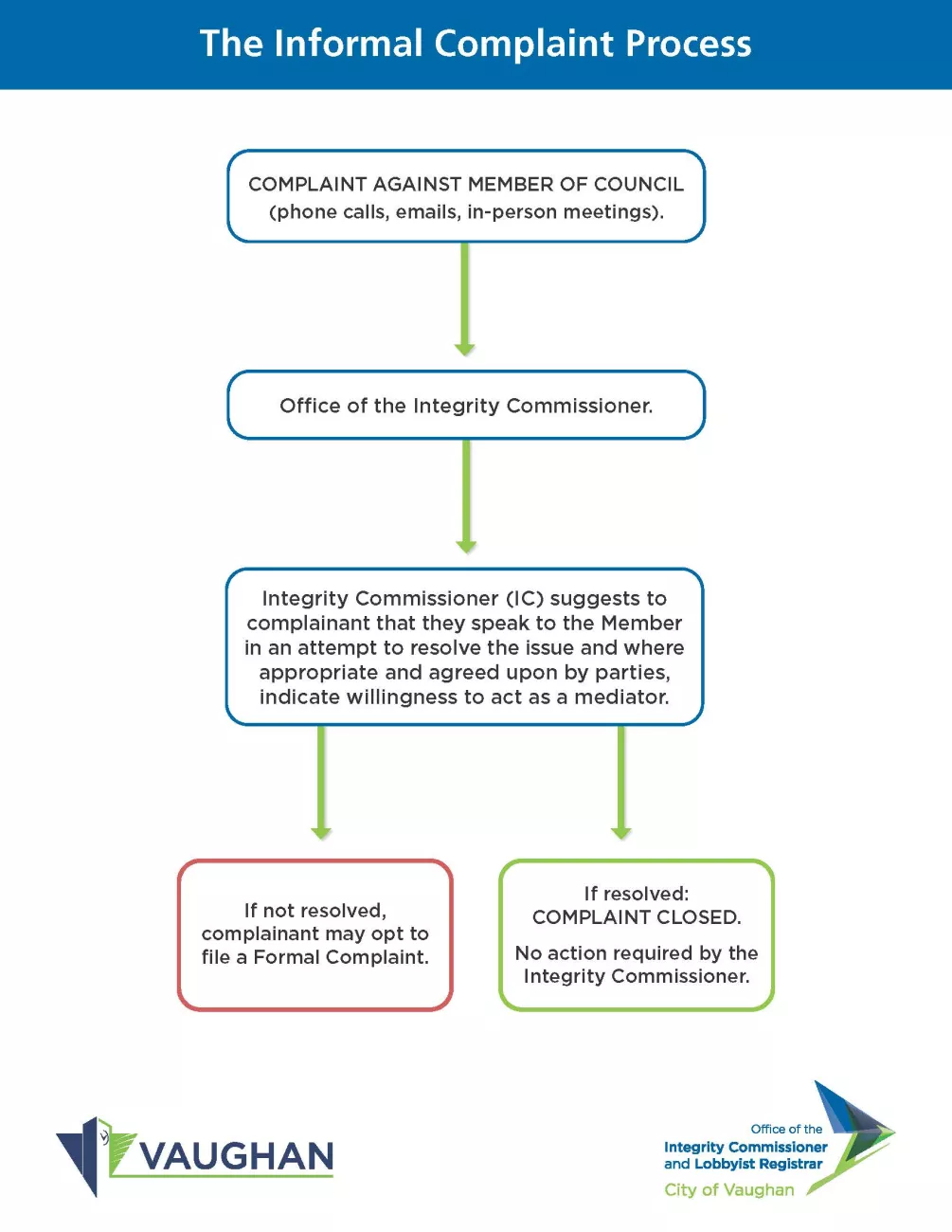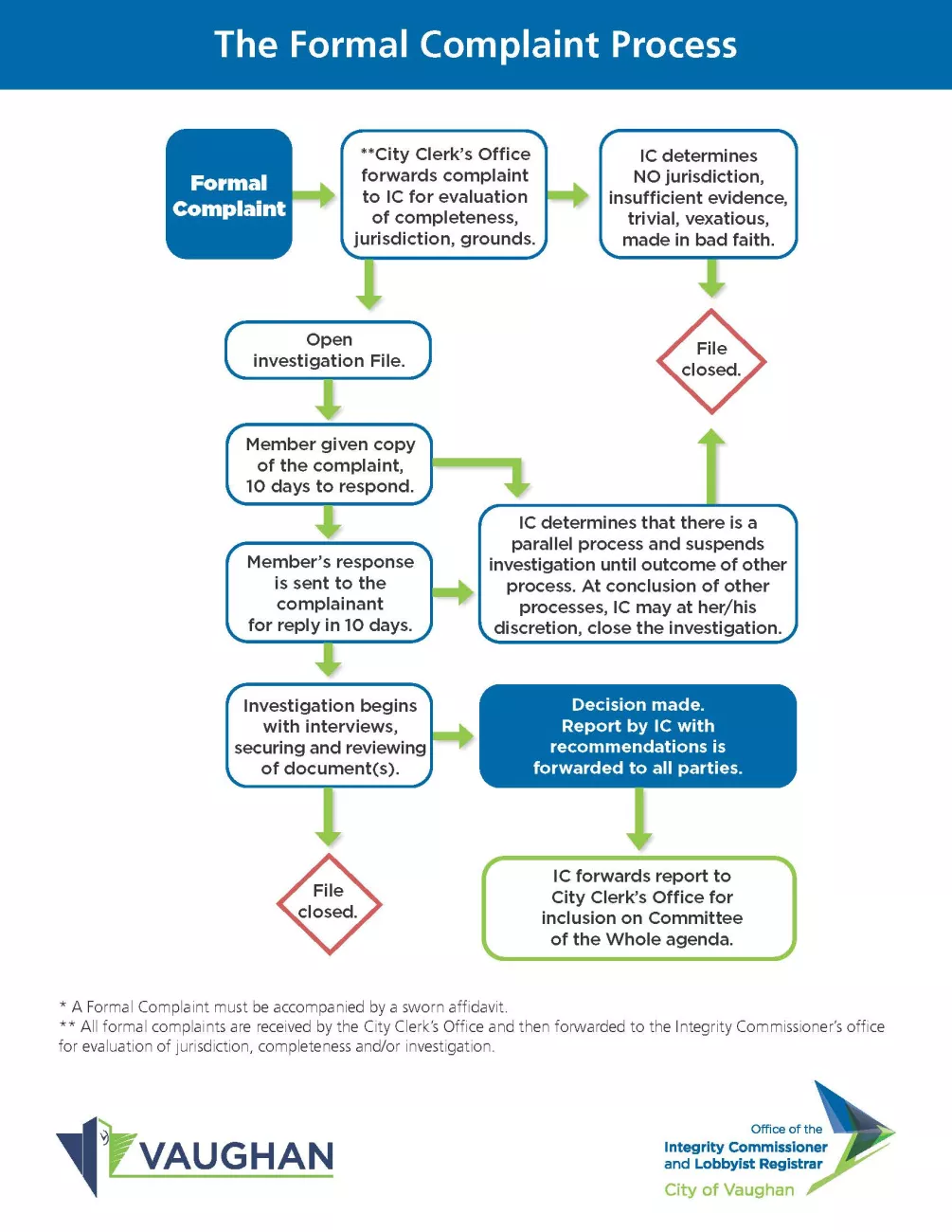Code of Conduct Complaint Process
All elected officials are required to follow the Code of Ethical Conduct for Members of Council and Local Boards (PDF) and refer to the Complaint Protocol for the Code of Ethical Conduct for Members of Council and Local Boards (PDF). If a Council Member appears to have violated a section of the code, a complaint can be submitted to the Integrity Commissioner.
Complainants may decide to use an informal or formal procedure to file a complaint. The complaint protocol does not allow anonymous complaints or withholding the complainant’s name from the Council Member.
Informal complaint procedure
The informal complaint procedure allows the Integrity Commissioner to have an informal discussion with the Member of Council to resolve the issue.
If the Integrity Commissioner determines the complaint is legitimate and the code has been violated, the informal process begins. This procedure involves:
- advising the Council Member that he or she has violated a section of the code.
- encouraging the Council Member to stop all actions or activities violating the code.
- keeping a written record of the incidents that occurred, including steps taken to resolve the matter.
- sharing the Integrity Commissioner's satisfaction or dissatisfaction with the Council Member’s response to the complaint identified.
If an informal resolution is unsuccessful, a formal complaint process is followed.

Formal complaint procedure
Individuals who would like to make a formal complaint can do so by following the Complaint Protocol for the Code of Ethical Conduct for Members of Council and Local Boards (PDF) and submitting a signed Complaint Form and Affidavit (PDF) to the Office of the City Clerk. Once submitted, it is filed with the Office of the City Clerk and then forwarded to the Integrity Commissioner.
- All formal complaints must be made using the Complaint Form and Affidavit (PDF).
- All names of the complainant and alleged Council Member(s) must be provided.
- An explanation outlining the alleged violation is required.
- Any witnesses or evidence in support of a complaint is required.
The Integrity Commissioner will determine if the complaint violates the code and may request additional information. The elected official is then given a copy of the complaint and asked to respond in writing, with a copy of this response provided to the complainant. The process can include an interview between the complainant and Integrity Commissioner.
Generally, within 90 days of filing the complaint, the Integrity Commissioner will submit a report to Council detailing violations of the code and her recommendations. Once the report has been reviewed, Council will determine what actions will be taken.

Additional Resources
- Application for Municipal Conflict of Interest Act Investigation (PDF)
- Code of Ethical Conduct for Members of Council and Local Boards (PDF)
- Complaint Form and Affidavit (PDF)
-
Complaint Protocol for the Code of Ethical Conduct for Members of Council and Local Boards (PDF)
- Council Member Information Statement (PDF)
- Donor Declaration Form (PDF)
- Formal Complaint Process (PDF)
- Informal Complaint Process (PDF)
- Member of Council Participation in Community Organizations (PDF)
- Member of Council Request for Written Advice (PDF)
